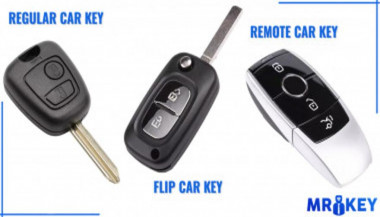Unlocking the World of Car Keys
Car keys have come a long way from simple metal tools to high-tech devices designed to enhance convenience and security. As vehicles evolve, so do the keys that unlock and operate them. Whether you’re a car enthusiast or a driver navigating modern technology, understanding the different types of car keys and their functions can help you appreciate their role in your vehicle’s performance and safety. This guide explores various car key types, their unique features, and the technologies behind them.
Traditional Car Keys: The Classics
Traditional car keys, often referred to as mechanical keys, are the simplest type of car keys. These are commonly found in older vehicles and rely on a basic metal blade that fits into the car’s ignition and door locks.
Key Features of Traditional Keys:
- Require no electronic components.
- Depend on physical alignment to operate the lock or ignition.
- Can be duplicated easily using a standard key-cutting machine.
While these keys are straightforward to use and replace, they lack the advanced security features of modern alternatives, making them more vulnerable to theft.
Transponder Keys: Enhanced Security
Transponder keys are a significant upgrade from traditional keys, incorporating a small electronic chip inside the plastic head of the key. This chip communicates with the vehicle's computer system to authenticate the key before the car starts.
How Transponder Keys Work:
- The chip transmits a unique signal to the car’s receiver when the key is turned in the ignition.
- If the signal matches, the car starts; if not, the engine remains immobilized.
Benefits of Transponder Keys:
- Reduced risk of car theft due to their encryption technology.
- Widely used in most vehicles manufactured after the mid-1990s.
However, duplicating or replacing a transponder key requires specialized equipment, making it more expensive than traditional keys.
Smart Keys: The Modern Marvels
Smart keys represent a leap into advanced automotive technology. These keys are typically used in vehicles with keyless entry and push-button start systems. Instead of inserting a key into the ignition, drivers simply need to have the smart key inside the vehicle.
Key Features of Smart Keys:
- Allow for keyless entry and ignition.
- Use radio frequency identification (RFID) or Bluetooth technology to communicate with the car.
- Often come with additional functions, such as opening the trunk or remotely starting the vehicle.
Advantages of Smart Keys:
- Enhanced convenience and ease of use.
- Advanced security features to deter theft.
Despite their benefits, smart keys are expensive to replace and rely heavily on battery power.
Remote Keys: A Blend of Mechanical and Digital
Remote keys, often combined with transponder technology, offer the ability to lock and unlock car doors at the push of a button. They are commonly included in modern car key fobs and sometimes have a physical blade as a backup.
Features of Remote Keys:
- Control doors, windows, and sometimes the trunk remotely.
- Combine traditional key functions with modern convenience.
These keys are versatile and user-friendly but may require reprogramming if the battery is replaced or the signal becomes disrupted.
Key Cards: Compact and Stylish
Key cards are a relatively new addition to the world of car keys, commonly used in high-end and electric vehicles. These slim, credit card-sized devices function like smart keys and communicate wirelessly with the vehicle.
Advantages of Key Cards:
- Compact and easy to carry.
- Offer the same functionality as smart keys, including keyless entry and ignition.
While key cards are sleek and innovative, they are prone to damage due to their thin design and may not be as durable as traditional keys.
Valet Keys: Limited Access
Valet keys are designed to offer restricted functionality, allowing a valet or another driver to operate the car without accessing certain areas, such as the glove compartment or trunk.
Purpose of Valet Keys:
- Provide limited access to the vehicle for security purposes.
- Prevent unauthorized access to personal belongings.
Valet keys are a practical solution for safeguarding your possessions while still enabling temporary access to your car.
Digital Keys: The Future of Key Technology
Digital keys are the latest innovation in car key technology, allowing drivers to use their smartphones or smartwatches to unlock and start their vehicles.
How Digital Keys Work:
- Use NFC (Near Field Communication) or Bluetooth to interact with the vehicle.
- Allow for remote access, such as locking or unlocking the car from a distance.
Benefits of Digital Keys:
- Eliminate the need for a physical key.
- Offer enhanced customization, such as granting temporary access to other users.
As convenient as they are, digital keys rely on smartphone technology and can be vulnerable to hacking if not properly secured.
Choosing the Right Key for Your Needs
Car keys have evolved into sophisticated devices that combine functionality, convenience, and security. Whether you’re using a traditional key or embracing the future with a digital key, understanding the type of key your vehicle uses can help you maintain it properly and replace it if necessary.
By staying informed about the different types of car keys and their unique functions, you can make smarter choices when it comes to safeguarding your vehicle and enjoying the driving experience to the fullest.

 (1)_1736344815.jpg)
_1733388347.jpg)
 (1)_1741183083.jpg)
 (1)_1736345149.jpg)
